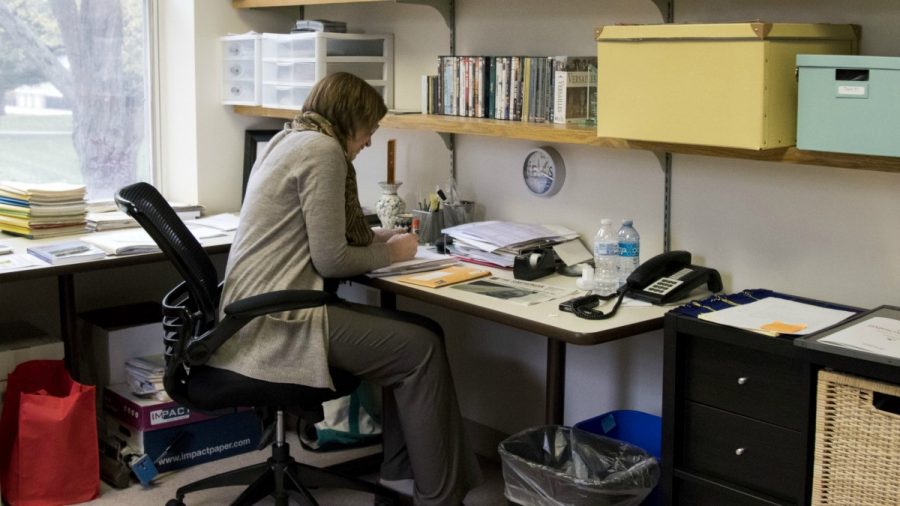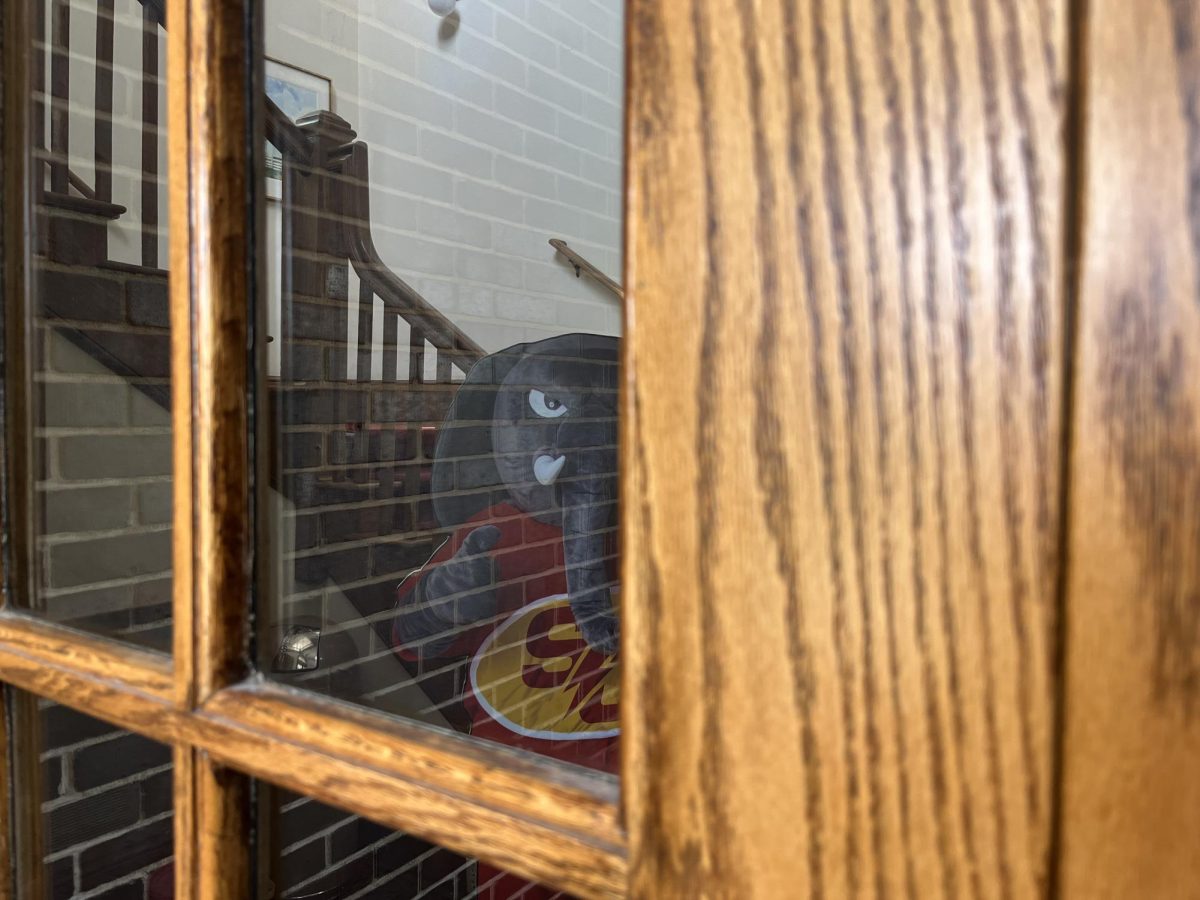Sabbaticals give professors chance to delve deeper in field
November 19, 2017
INDIANOLA, Iowa — Simpson professors take sabbaticals each year on and off campus to grow in their field and renew their sense of interest in learning.
Professors on campus are involved in research and service work on top of their teaching. Every seventh year, however, they are given the opportunity to apply for a semester of dedication to a specific project.
“A sabbatical is an opportunity afforded to a faculty member who has been at the job long enough and have worked hard enough and have the credibility to have earned the opportunity to take a break in order to do further study and investigation,” said Kent Eaton, Simpson’s chief academic officer.
Allison Wolf, a professor of philosophy, spent her first sabbatical studying the ethics of childbirth and her second sabbatical studying immigration injustice in Central America, the United States and Mexico.
She added a unit on the ethics of childbirth into a course she already taught. “Ideally, research informs teaching and teaching informs research,” Wolf said.
On her last sabbatical, Wolf went to Costa Rica to learn at the Institute of Philosophical Investigation where she was able to learn from professionals in geography, sociology and other subject areas.
“I can’t do research in other places while I am teaching,” Wolf said.
The connections from this sabbatical allowed her to create a May Term course about what she learned, bring guest speakers to campus, present her findings, add to her courses and generally give back to her students.
Wolf said she feels passionate and rejuvenated in her work by working with so many new people. “This is why I feel so passionately about the interdisciplinary honors program,” Wolf said.
“Ask your professors about sabbaticals,” she said. “When you have writer’s block, we understand. Not just because we remember but because we are working on it right now.”
Out of 11 faculty applications to take a sabbatical, six were accepted, Eaton said.
“If this person takes a sabbatical, they will come back and have studied these particular areas and have advanced scholarship in their field and also be more rested and prepared in the classroom to help students with their research,” Eaton said.
Professors on sabbatical are paid for one semester. If they are gone for a year, they are paid half a year’s salary.
Eaton said these professors’ classes are sometimes taught by adjuncts in their absence as it is the most cost effective.
In other circumstances, other professors may teach those courses as part of an overload to their schedule. If there is no one else able to teach those courses, someone may be hired full-time for one year if there is a chance the students will not have a beneficial experience.
Eaton said he hopes students notice the professors’ clear sense of renewal after a sabbatical. “In some ways it reminds us why we get into this: because we love learning and the learning process,” Eaton said.
Sharon Wilkinson, a French professor, said the college always does its best to fund worthy sabbatical proposals, and they vet the projects based on the likelihood of success and the project’s overall readiness.
“I was really interested in learning more about online teaching,” Wilkinson said. “I had never taught online. It is becoming more common in colleges and universities to have classes online. The project was really just trying to find out more.”
Wilkinson will take what she learned and redesign a class she has taught to an online format. This course will be shared amongst other colleges with low enrollment in high-level courses and help more courses be available to students.
“I wanted to learn as much as I could about best practices and good online teaching. I wanted to do a certification in online teaching, and I wanted to have time to devote to that,” Wilkinson said.
She said the knowledge of online teaching she gained was practical, not just theoretical and that it provided her with new possibilities.
“It sparks all this growth and renewal, I am so grateful for these opportunities to Simpson College and to my colleagues. I hope it pays back to the college, the students, and the profession,” Wilkinson said.






